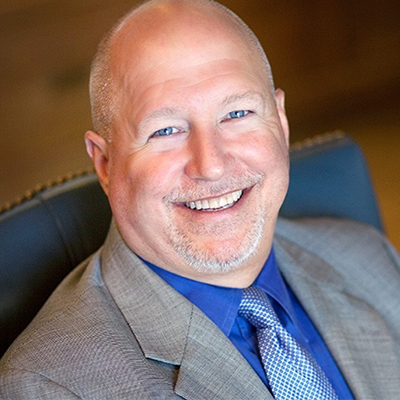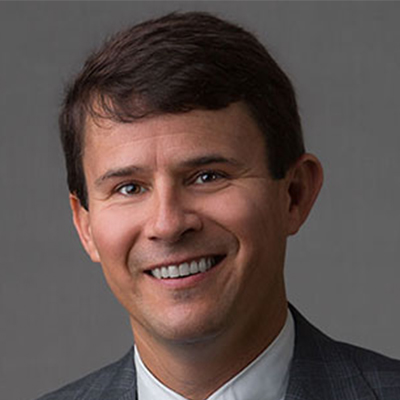We don't often hear the word legacy used with law firms, especially today when so many firms (large and small) are merging. The American Heritage Dictionary defines legacy as "something handed on from those who have come before." When a firm sells, merges or just closes its doors there is no legacy. Too many law firm owners today do not care about their legacy. It seems that there are many more important things to be concerned about.
A recent study conducted by Rob Lees, Derek Klyhn and me found that "if partners don't think about their legacy, about leaving something better for those who follow, rather than just their own tenure, you end up with a group of mercenaries who are just in it for the money, who have no interest in their fellow partners or the firm, and whose natural instinct is to think of themselves first." [i]
As with most aspects of a firm's culture, the "Legacy/Mercenary Scale" below represents two extremes of the continuum. I don't know of any firms that are 100% mercenary or 100% legacy. Healthy firms need to be at least in the middle of the continuum. The first thing for you to do is to determine where you think you fall between the two extremes.
LEGACY/MERCENARY SCALE

What is a Mercenary Firm?
We often relate the term mercenary with an individual or group that is concerned with or totally motivated only by a desire for money or other material gain, or we may think of a professional soldier who is hired by a foreign country. In either case it is all about what the individual can get for himself.
The same is true in a mercenary law firm. The partners (if you can call them partners) are mainly motivated by what they can make. This is often an "eat what you kill" type of firm. I even hesitate to call it a firm, because in reality it is merely a group of individuals who gather under a common roof to work and go out to hunt.
While partners in a mercenary firm can certainly make a lot of money, the problem is they are not building or leaving anything for future generation of partners. For example, partners in a mercenary oriented firm would not spend time teaching younger associates. It would be a swim or sink environment. Individuals who are self-sufficient and self-learners do well in the mercenary environment. They are very unlikely willing to invest in the practice because it eats into their profits.
When you get to the extreme left of the "Legacy/Mercenary Scale," the partners feel that they are more important than the firm and they hold on to their clients even if someone else in the firm would provide better service. I have noticed that firms that have a difficult time in cross-servicing their clients, usually have somewhat of a mercenary attitude since partners do not trust anyone else with their clients.
You will often see a lot of prima donnas or lone wolves in the mercenary firms. It goes without saying that these types of partners are the most dysfunctional and damaging to the firm. Mercenary partners have strong personalities and can often bully other partners into accepting their way.
Finally, management in a mercenary firm is usually weak. Mercenary partners don't want anyone telling them what to do.
What is a Legacy Firm?
You can imagine that a legacy firm is going to be pretty much the opposite of a mercenary firm. Legacy firm partners really put the firm first. For them, the firm is more important than any individual partner. They see themselves as custodians. Their job is to take care of the entity, to build it, to enhance its value and then pass it on to the next generation of partners. Staff who work in this type of firm will stay because they see that the partners are doing what is right for the firm rather than what is right for them.
When it comes to clients, the legacy partners bring all the firm's resources to the client. Clients belong to the firm and partners are not afraid to introduce other professionals from within or outside of the firm to their clients.
Legacy partners can have strong personalities. They are not necessarily a bunch of push overs. They strongly believe in the firm and they know how their strengths help the entity overall.
While mercenary partners distain firm management, legacy partners appreciate how management helps them do their work better. You can't be a legacy partner unless you feel that there is a real synergy by working together. The sum of the partners is much greater than the results obtained by merely adding their numbers together.
You won't find prima donnas or lone wolves in the legacy firm. Here the partners can best be described as team players who know their roles.
Which Type of Law Firm is Yours?
As I mentioned at the beginning of this article, there is no perfect legacy or mercenary firm. I do, however, believe that to maximize a firm's profit, provide superior client service and retain great and good people you need to be more legacy than mercenary.
The first thing you need to do is to plot where your firm falls on the continuum. If you want to move more to the right in "Legacy/Mercenary Scale," here are some suggestions:
- Review your compensation system to see what type of behavior you are rewarding. There is nothing wrong with rewarding partners for their individual efforts, but you also want to recognize their team contributions.
- Have a one-on-one with those partners who you consider prima donnas or lone wolves and see whether they can fit into the firm or should they go elsewhere.
- Get the partners engaged in a robust dialog on this topic in order to get their input and ideas.
- Clarify what being a partner means in your firm.
- Begin a team approach to serving clients.
- Create a firm culture where all the partners work together to create an even better firm.
While the legacy firm model will not be perfect, you will create a firm that openly addresses issues and continuously strives to improve. And finally, a legacy firm has a better chance of remaining independent or being the acquirer rather than the acquired.
______
[i] Leadership at Its Strongest: what Successful Managing Partners Do, Robert J. Lees, August J. Aquila and Derek Klyhn (Bay Street Group, LLC, 2013), p. 25.
About the Author

August Aquila is CEO of AQUILA Global Advisors, LLC and has strategic partners in England, India and Canada. He is the co-author of two recent books How to Engage Partners in the Firm's Future (2013) and Leadership At Its Finest: What Successful Managing Partners Do (2013). Reach August at aaquila@aquilaadvisors.com or 952-930-1295.


















